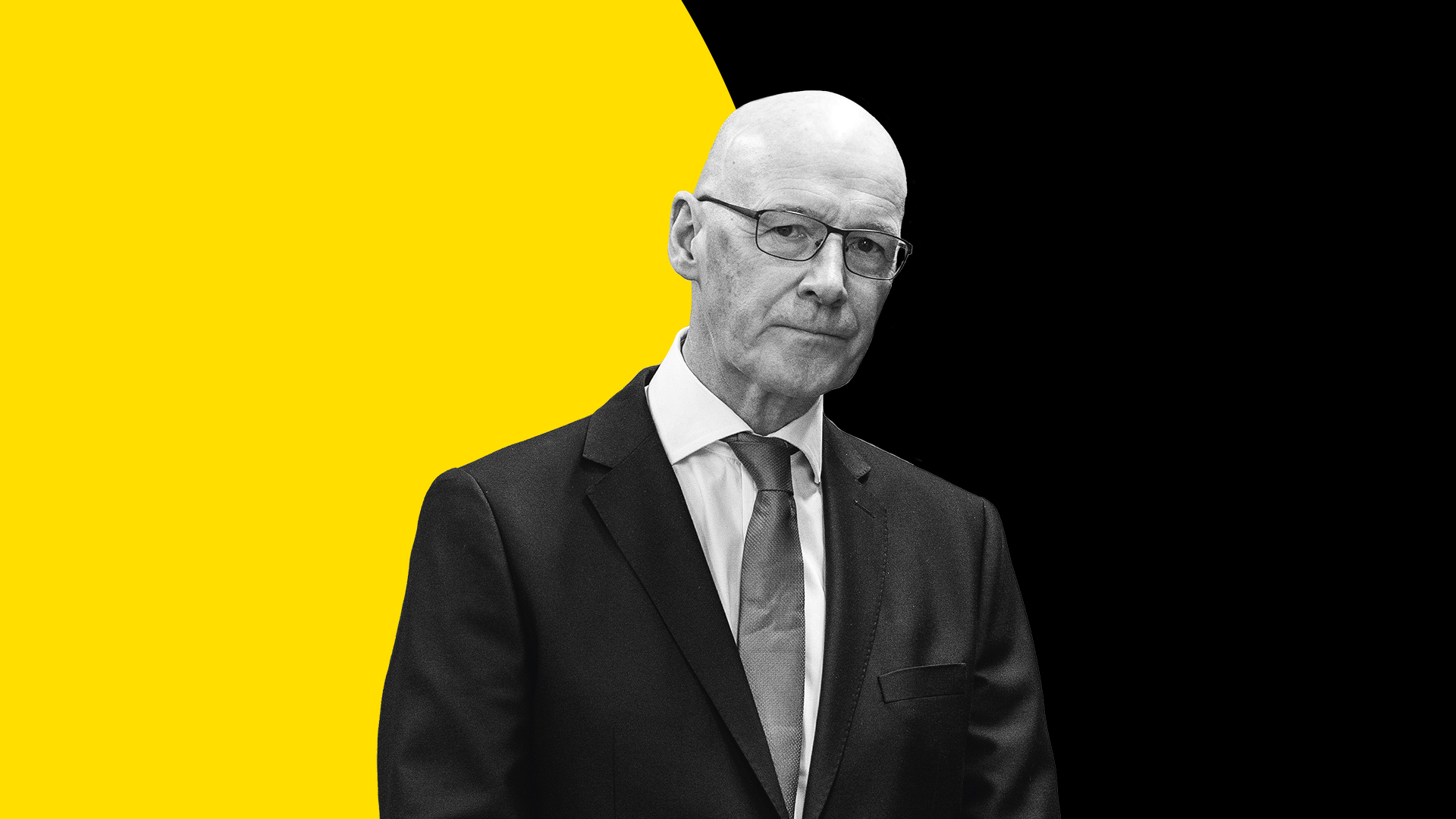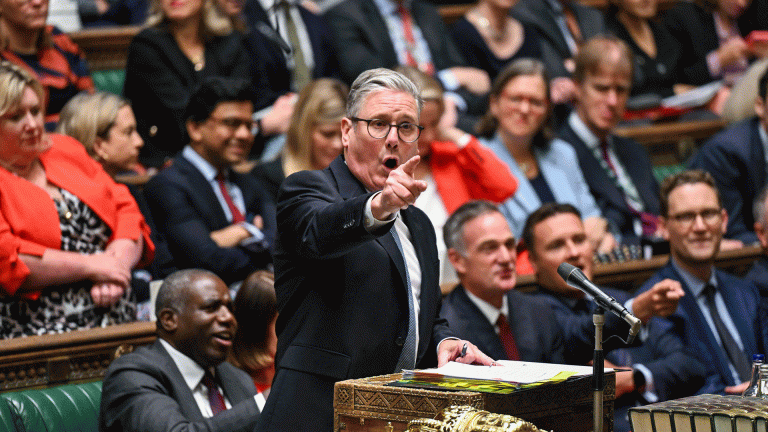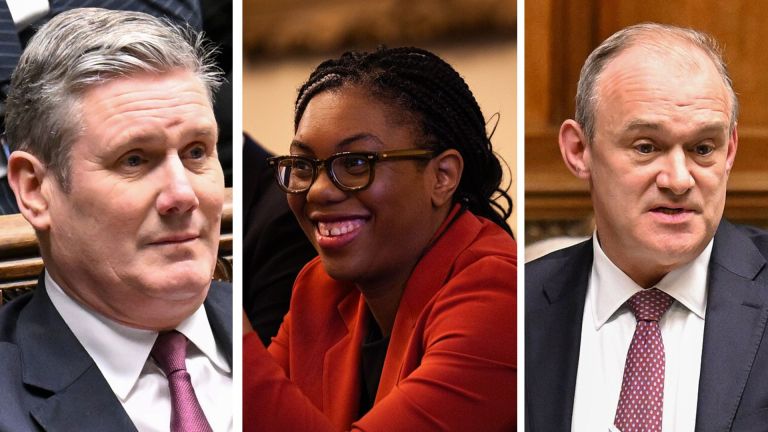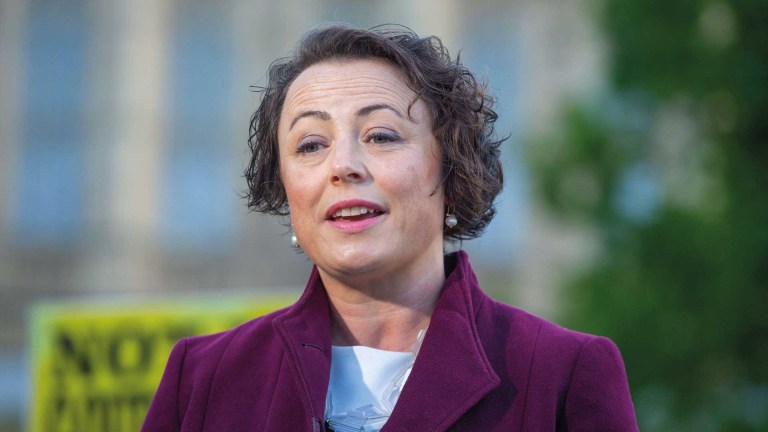Despite the challenges of UK austerity, Brexit and the cost of living crisis, the SNP government delivered an estimated £1.4bn to benefit children in low-income households in 2023-24. We made sure no one in Scotland has to pay for the Conservatives’ bedroom tax and we will spend £90m this year alone on that.
The SNP Scottish government policies are estimated to be keeping 100,000 children out of poverty this year – 60,000 of them through the Scottish Child Payment. I want Scotland to be the best place in the world to grow up, and for every single child to be able to meet their full potential.
If you had a magic lamp but only one wish, would you wish for independence or an end to poverty for all? You must choose one.
We can’t just wish poverty away, and I don’t think we should pretend that we can. We all want to see an end to poverty, and people support independence precisely because they believe it gives us the powers to tackle the deep-rooted challenges in our society.
Neighbouring countries comparable to Scotland have lower inequality and poverty rates than the UK. Independence won’t mean that Scotland can match their success overnight, but with all our economic strengths, the question is: why not Scotland?
The benefits system is punitive and causes distress for people who cannot work. How will you help these people?
Advertising helps fund Big Issue’s mission to end poverty
I wholeheartedly agree. And we are already taking action to stand in the way of some of the measures the Tories have introduced over the past 14 years. The punitive Westminster benefit sanctions regime causes hardship and pushes people into poverty, debt, crisis and towards food banks and emergency aid. I will continue to call for the Tory sanction regime to be scrapped along with other changes in universal credit which are so needed.
BIG ISSUE: How many Westminster seats on 4 July will count as a success for the SNP?
JOHN SWINNEY: I am campaigning to win the election in Scotland and I will fight for every vote. Unlike Labour, the SNP will never take the people of Scotland for granted.
With the Tories already finished, the real choice at this election is whether we give Sir Keir Starmer a free pass to impose £18bn worth of public spending cuts, or whether we have strong Scottish voices there to stop him. On 4 July, all those who vote SNP are voting to oppose Westminster cuts, protect our NHS and put Scotland’s interests first.
Free university education for Scottish students in Scottish universities is a helpful route to better lives and opportunity for many. But given financial pressures, how long is it sustainable?
I am absolutely committed to free tuition and there will never be tuition fees in Scotland as long as I am first minister. Since this policy was put in place, the number of Scottish students entering university has increased by 31% and I think that’s a really positive achievement. Scotland’s student debt levels are also the lowest in the UK, almost three times lower than in England.
Advertising helps fund Big Issue’s mission to end poverty
Our universities play a pivotal role in Scotland’s economy and society. The Scottish government will invest over £1bn on teaching and research, including an increase in funding for research and innovation. This will ensure our universities continue to play a pivotal role in Scotland’s economic growth.
The SNP have been in power for 17 years. What can you offer that is new and better for your nation considering that huge length of time? And if it is good, why hasn’t it been done already.
The SNP is building a better Scotland within the limits of powers and budget, and will continue to do so. However it is with full powers of independence we can see change we all want to see.
We in Scotland will always be fighting poverty with one arm tied behind our back while successive UK governments impose policies that result in the opposite outcome – like the 9% cut to our capital budget which affects our housing budget.
Since 2007, the SNP in government has completed over 128,000 affordable and social homes, delivered over 292,000 Baby Boxes, and is spending £3bn a year to support low-income households. That’s a record I am proud to stand on and build upon.
You’re now the second first minister who has come to office without a Scottish election. Wouldn’t democracy be best served if you were to go to the people and call an election?
Advertising helps fund Big Issue’s mission to end poverty
I was elected by my fellow MSPs, which is the system we have had in Scotland since 1999. The Scottish parliament has fixed elections unlike at Westminster where the PM chooses the timing – so there will be an election in May 2026. And until then I will be focusing on serving the people of Scotland.
If you came across a parent in a shop who was shoplifting baby formula to feed their child, what would you do?
I’d discreetly offer to pay for the formula as no parent should ever have to face this situation. Sadly, this is not hypothetical – I meet with my constituents, and people across Scotland, every week who face this kind of hardship.
You faced significant personal attacks before and after becoming first minister. How do you remain robust enough to meet these attacks?
There is no doubt that frontline politicians are at the receiving end of personal attacks and abuse. I try to lead by example. I always treat my political opponents with respect and always try to build consensus where that is possible. All of us have a duty to unite and condemn abuse whenever we see it.
Would you rather have coffee with Keir Starmer or Nigel Farage?
Advertising helps fund Big Issue’s mission to end poverty
Keir Starmer.
Big Issue vendors’ questions
BIG ISSUE: What support are you planning to give homeless people? Craig, Caffe Nero, Argyle St, Glasgow
JOHN SWINNEY: My aim is that everyone should have a warm and safe place to live. The pandemic showed us that when there is a strong enough will, we can make rapid change in a very short period of time.
The SNP Scottish government has a proven track record of tackling homelessness. In addition to funding for homelessness and housing we give to councils, we have a £100m multi-year ending homelessness together fund to back our or specific action to prevent homelessness.
In 2016, we abolished Right to Buy, protecting an estimated 15,500 council homes from being sold off. And while the UK government yet again failed to end no-fault evictions for England, we did this in 2017. We introduced new tenancy rights to provide stability for tenants, where tenancies can only be ended because of specific reasons like the property being sold, rents can only rise once a year and with three months notice.
And we introduced a temporary rent cap and eviction ban in 2022 to support people through the Westminster-made cost of living crisis.
Advertising helps fund Big Issue’s mission to end poverty
Why aren’t you creating more social and realistically affordable housing? Kelvin Gregory, Somerset House, London
Since 2007, we have delivered over 128,200 affordable homes across Scotland, with over 90,000 for social rent. This is the highest in the UK – indeed, it is 40% more per head of population than in England and 70% more than in Wales. And average weekly social rents are more affordable, with equivalent rates in England, 11% higher, and Wales 14%.
The Scottish government remains firmly committed to its target of a further 110,000 affordable and social homes by 2032, with at least 70% of them for social rent and more than 10% in remote, rural, and island areas.
What will you do to create employment opportunities for homeless people and when? Cristian, Morningside, Edinburgh
One of my four key priorities is to grow the economy and therefore have more job opportunities for all.
We want to make sure that people get the support they need that meets their needs, and that they are supported to access the right job at the right time. This year, the SNP Scottish government is investing up to £90m in employability services, targeted at supporting those facing barriers to entering employment. My government is also working alongside Public Health Scotland to understand the barriers that ill health – physical and mental – can create to having and sustaining work.
Advertising helps fund Big Issue’s mission to end poverty
Why are you not turning empty and abandoned buildings into homes for homeless people? Josh Clarke Co-op, Henleaze, Bristol
We recognise this is complex as so many empty properties are privately owned not abandoned. That is why we have invested nearly £4m in the Scottish Empty Homes Partnership which has brought over 9,000 empty homes back into use since 2010.
Legislation also recently came into force granting local authorities the power to double council tax rates on second and empty homes; and we have introduced incentives to purchase empty homes.
Would you consider a 1p tax rise that is ring-fenced for A&E to increase premises and staff in order to improve waiting times until GP appointments (and GPs) become more readily available? George Anderson, BBC Television Centre, London
George, your question helps to highlight how the whole health service is interconnected. We absolutely need to invest more in our frontline emergency health service – and that’s one of the reasons the SNP introduced more progressive taxation in Scotland. By asking those on higher incomes to pay a bit more, we’ve unlocked an extra £1.5bn to invest in services like our NHS.
And we will improve waiting times in A&E by ensuring that patients are being cared for elsewhere if that is what is best for them. My government is focused on tackling delayed discharge from hospitals by reforming and strengthening Scotland’s social care sector.
Advertising helps fund Big Issue’s mission to end poverty
When was the last time you bought a Big Issue? What did you like about it? Paul Logan, Oxford Circus, London
I last bought a copy of the Big Issue a couple of weeks before I became first minister as I got into the habit of buying a copy from a seller at Waverley Station when I got off the train for parliament.
For me, the real value of the Big Issue is that it is a publication with a social conscience. From culture to news, it tackles issues with an acute focus on what really matters to people. The Big Issue takes time to consider the big political issues of the day, too.
I’ve been encouraged to see the Big Issue picking up on Labour’s shameful refusal to scrap the two-child benefit cap. The SNP has long-campaigned for this dreadful policy to be scrapped and we will keep pushing for Labour to see sense on this.
The NHS is a mess, housing is a mess, where do we start to fix them? Paddi, Waterstones, Sauchiehall St, Glasgow
Our NHS has been under immense pressure because of the Covid pandemic and the impact of Brexit, which has significantly reduced Scotland’s ability to attract staff in our NHS and social care sector. I’d like to thank all those who work in our NHS for continuing to deliver first-class patient care.
Advertising helps fund Big Issue’s mission to end poverty
Scotland has the most GPs per head of population in the UK nations, and we are working hard to make the NHS as efficient as it can be. And we have invested more than any other part of the UK in housing too as I’ve outlined in other questions.
With the IFS saying both Labour and the Tories’ spending plans mean £18bn of spending cuts coming down the line, I am deeply concerned for the implications to Scotland’s budget.
Do you have a story to tell or opinions to share about this? Get in touch and tell us more. Big Issue exists to give homeless and marginalised people the opportunity to earn an income. To support our work buy a copy of the magazine or get the app from the App Store or Google Play.










